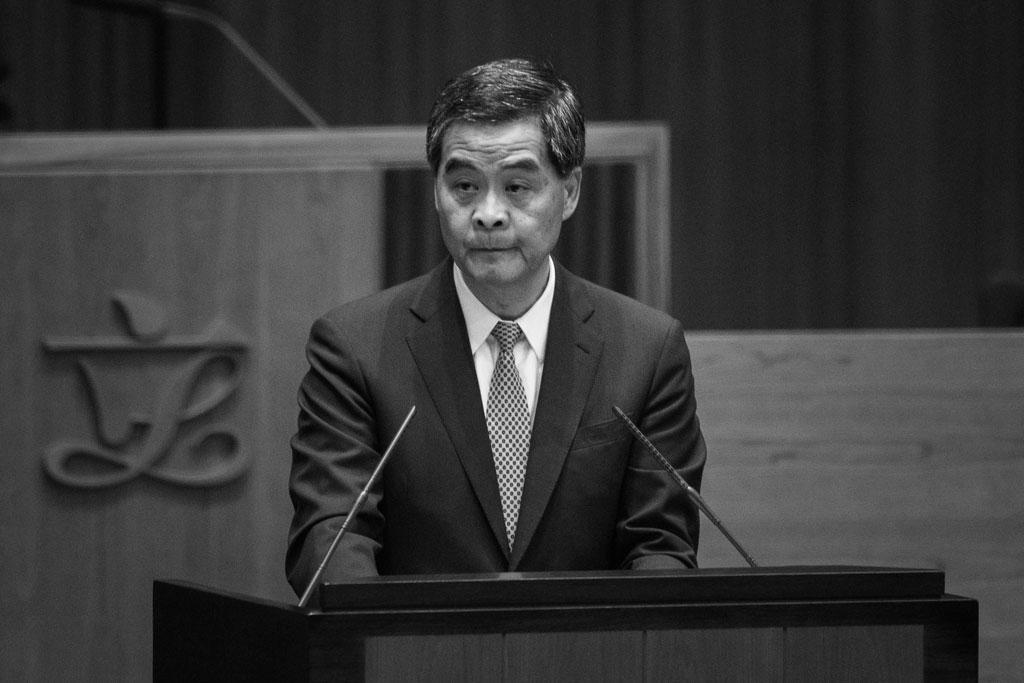Commentary
Hong Kong’s chief executive Leung Chun-ying was supposed to appease the city’s citizens with solutions to their political and social angst in his annual policy address—instead, he infuriated them by backing unpopular Beijing policies, and laid out plans to more closely integrate Hong Kong into mainland China.
In a televised address on Wednesday, the Hong Kong leader announced his blueprint for key issues in city, such as housing, economic development, and education.
Leung promised to build 480,000 apartment units, including 200,000 rental units, in 10 years to solve Hong Kong’s housing shortage and cool rising property prices.
A capital investment scheme that allowed foreigners to become residents if they put HK$10 million ($1.29 million) in government-approved investments was scrapped.
More elementary and middle-school students will have to study at least once on the mainland, while the Education Bureau has been tasked with reviewing the Chinese and world history courses.
Leung also discussed constitutional development and the city’s youth, two hot topics in light of a two-month long public consultation on political reform launched by the Hong Kong government last week, as well as the recently ended student-led pro-democracy demonstrations.




